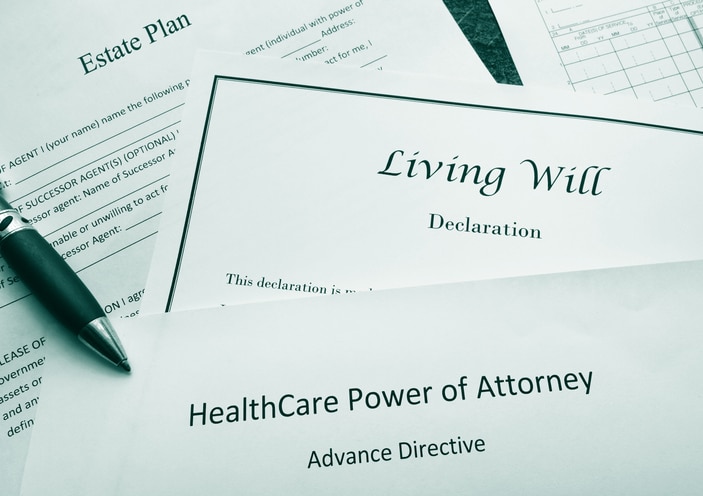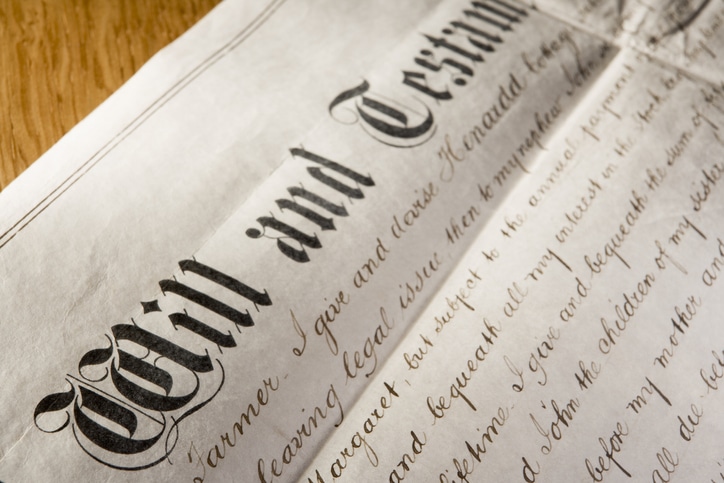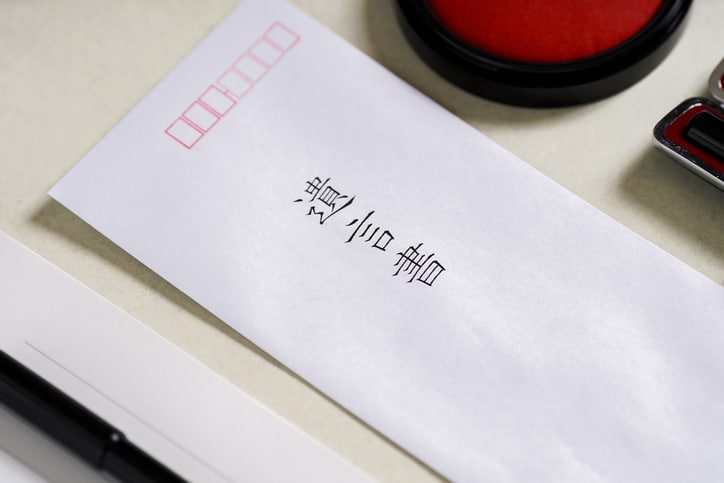Florida Probate Code
Probate is the legal process in which a decedent’s estate is distributed to beneficiaries according to a last will and testament, or in the event there is no last will and testament, to the heirs determined by Florida intestate rules. An even simpler explanation for probate, is the process necessary to retitle assets out of the name of a decedent, and into the names of the correct beneficiaries. It’s important to note, that after someone’s passing, a probate will not always be required, and not every asset must be included in the probate process or governed by the Florida Probate Code.
When someone passes away, the Florida Probate Code governs every step of the probate process, which would include notification of creditors, determining how creditors are paid, assets are distributed, identifying beneficiaries via rules of succession, and even determining reasonableness of probate attorney fees.
The following is an overview of important sections of Florida Probate Code (Chapters 731 through 740) in addition to other relevant areas of Florida law applicable to the probate process. It is always recommended that you consult with an experienced Florida probate attorney to understand the laws, rules, and rights of beneficiaries under Florida probate law.

Probate Code Chapter 731: General Provisions
Chapter 731 provides several general provisions for probate in Florida, as well as definitions of specific terms commonly utilized during the probate process, such as “claim”, “devisee” and “beneficiary.”
Chapter 731.103 allows an authenticated copy of a death certificate to be used as evidence of death. If necessary, a report or record of a government agency that the individual is presumed dead can be used.
Chapter 731.110 allows anyone who believes that an estate will be administered, or that a last will and testament may be admitted to probate without their knowledge, can file a caveat.
By filing a caveat, the court is put on notice that you are an interested party, and requires that the clerks mail you notice of any petitions that are deposited, prior the judge issuing any court orders. A caveat can be filed by any interested party, such as a family member, before or after someone has died. Alternatively, creditors may file caveats only after death.

Probate Code Chapter 732: Intestate Succession and Wills
This critical section of Florida Probate Code covers many topics. When someone dies without a valid Will, Chapter 732 determines how the estate will be distributed according to “intestate” succession rules. The “intestate” rules, are basically the guidelines for identifying the default heirs to an estate, in the event a person passes without a Will, which happens quite often.
If there is no Will, assets are distributed according to specific intestate rules in Chapter 732:
- · The surviving spouse receives the entire estate if there are no living descendants.
- · If there is a surviving spouse AND surviving descendants, and all the decedent’s children are related to the surviving spouse (and the surviving spouse has no children from anyone other than the decedent), then the surviving spouse will receive the entire probate estate.
- · If there is a surviving spouse AND surviving descendants, and either the decedent or the surviving spouse has children with anyone from outside the current marriage, then the surviving spouse is entitled to fifty percent (50%) of the probate assets, and all the decedent’s children will split the remaining fifty percent (50%).
- · If the decedent was not married and left descendants, the probate estate will be divided at the generational level of the decedent’s children. If a child died before the decedent, their share of the estate will be distributed to the descendants of the deceased child.
- · If the decedent was not married with no surviving descendants, the estate will pass to surviving parents followed by siblings.
Exceptions are made for some personal property and homestead property.
Chapter 732 also covers wills, including who may make and witness a will; the effect of subsequent marriage, dissolution, and birth; and how wills are admitted and contested.

Probate Code Chapter 733: Administration of Estates
Chapter 733 applies complex rules regarding how a probate estate is administered. This includes:
- · Rules on the venue (the county in which the decedent lived)
- · How a will is construed
- · The burden of proof to contest a will
- · Attorney’s fees and costs based on the value of the estate
- · Notice of administration served to potential beneficiaries
- · Notice to creditors
- · Who may serve as a personal representative. In general, a non-Florida resident cannot be a personal representative, unless they are a close family member of the decedent.
- · Duties and powers of the personal representative including what they can and cannot do without a court order.
- · The amount of compensation a personal representative is entitled to receive from the estate for their services.
- · Order of priority regarding payment of claims, expenses, and obligations of the estate.
- · How probate is closed, and an order discharging the personal representative is obtained.

Probate Code Chapter 734: Foreign Personal Representatives; Ancillary Administration
This statute applies when someone dies and:
- · Leaves assets in Florida,
- · Leaves outstanding creditors in Florida, or
- · Liens on property in Florida
Ancillary probate is the legal process in which the real estate in Florida is subject to the probate process in the Florida circuit court. Typically, the family first conducts a domiciliary probate in the State in which the decedent was a primary resident at the time of death. The ancillary, or secondary, probate is only conducted to transfer or sell real estate located in a different state.
Chapter 734 grants the personal representative designated in the decedent’s will preference in being appointed as personal representative over the FL proceedings. Assuming the named person is qualified to act in Florida, meaning they are either domiciled in FL, or a close relative of the decedent, the probate court will issue “Ancillary Letters of Administration.” If the domiciliary executor, aka administrator, is not qualified to serve in Florida, the majority of beneficiaries can select a new person to serve.
Chapter 734 specifies which assets require ancillary probate administration in Florida including property such as a home, boat, or vehicle titled in Florida.

Probate Code Chapter 735: Small Estates
This section of Florida Probate Code establishes procedures for small estates that qualify for a summary administration process. It also lists criteria for a non-court supervised proceeding known as Disposition of Property Without Administration. Florida has no “Small Estate Affidavit,” which is a common form in other jurisdictions.
Under the Florida Statute § 735, an estate qualifies for summary administration if it is valued less than $75,000 or the decedent has been dead for over two years. The process requires the filing of a petition for summary administration.
If an estate does not qualify for summary administration under Chapter 735, it must go through formal probate administration according to the rules of Chapter 733.
Chapter 736: Florida Trust Code
Parts I — XIII
The Florida Trust Code applies to charitable and non-charitable trusts, express trusts, and trusts created with a judgment that requires administration like an express trust. Both revocable living trusts and irrevocable trusts are governed by Chapter 736.
Trusts can be an important element of estate planning to avoid probate and reduce tax liability. Florida Trust Code determines how trusts can be made and used, when and how they can be modified, and how they are affected by probate. Chapter 736 has 13 parts.
Part I: General Provisions & Definitions
Chapter 736 includes provisions that are default rules used in the absence of contrary provisions in a trust’s terms. However, mandatory rules cannot be overridden. Mandatory rules include those relating to the creation of a trust, court powers, a trustee’s duties, public policy restrictions, and procedure matters.
Part II: Judicial Proceedings
Any proceedings involving the administration, validity, or distribution of a trust are started by filing a complaint and governed by the Florida Rules of Civil Procedure with some exceptions. This section has rules on venue, court approval for actions by a guardian of property, and agent and trustee compensation review.
Part III: Representation
Representation under this statute refers to someone’s authority to act on behalf of someone else and to bind the person represented. Several categories of representation are identified:
- · Virtual representatives
- · Fiduciaries and parents
- · Court-appointed representatives
- · Power of Appointment
- · Designated representatives
Part IV: Creation, Validity, Modification & Termination
This section states how trusts can be created and require the settlor has the necessary mental capacity and intent. Beneficiaries must generally be ascertainable. Clear rules are stated for the modification, revocation, and termination of a trust.
Part V: Creditors’ Claims, Spendthrift & Discretionary Trusts
Spendthrift provisions are only valid if they restrain voluntary and involuntary transfers of a beneficiary’s interests. Some exceptions are made for creditors’ claims which a trust otherwise protects against including claims by a beneficiary’s spouse or children with a judgment or support order.
Part VI: Revocable Trusts
A trust is revocable by default. When a trust is revocable, creditors can reach the trust assets. The trust is subject to amendment and revocation and liable for the settlor’s estate’s obligations. Part VI states ways in which a revocable trust can be amended, revoked, or contests.
Part VII: Office of Trustee
A trustee has the right to resign with notice. Statutory grounds for removing a trustee are also listed including a breach of trust or unfitness. Trustees have the right to reasonable compensation if not specified in the trust terms.
Part VIII: Duties & Powers of Trustee
Trustees have a duty to act impartially to:
- · Administer in good faith
- · Administer prudently
- · Incur only reasonable expenses
- · Protect and control trust assets
- · Keep accurate records
- · Enforce and defend claims
- · Expeditiously distribute trust property
- · Inform and account
Part IX: Trust Investments
This section references provisions of Florida Statutes Chapter 518 and institutes special rules for life insurance contracts.
Part X: Liability of Trustee & Rights of Persons Dealing with Trustee
A trustee is not responsible for losses or depreciation in value absent a breach of trust. They can be liable for breach of trust and violations of other duties owed to beneficiaries. Damages may be awarded for these breaches.
Part XI: Rules of Construction
This section covers:
- · Trust contest penalty clauses
- · Effect of divorce on a revocable trust
- · Intentional, unlawful killing
- · Multi-generational class gifts
- · Construction of terms of relationship
Part XII: Charitable Trusts
Part XII covers rules on charitable trusts created for some charitable purpose. Certain elections, notices, and releases must be given to the Florida state attorney. The Attorney General can assert the rights of a qualified beneficiary in judicial proceedings.
Part XIII: Miscellaneous
This section covers severability and electronic signature and record rules.

Chapter 738: Principal and Income
This act covers the allocation of trust and estate disbursement and receipts between principal and income. It also has provisions allowing a trustee to adjust and convert a trust to a unitrust. The statutory sections of this act are default rules that only apply when a trust or will does not have specific provisions or does not give a fiduciary discretionary power.
This Chapter can guide allocation, receipts, and disbursement in many scenarios including specifically devised real estate inherited by multiple beneficiaries, rental real estate, and distributions received by a private trustee from a targeted or investment entity.

Chapter 739: Florida Uniform Disclaimer of Property Interests Act
When a Florida heir or beneficiary has a share of a probate estate but, for their own estate planning purposes, taxes, or qualifications for medical benefits, they choose not to take the probate assets, they can pass the assets to other beneficiaries or their own heirs. This Chapter allows heirs and beneficiaries to take a pass on probate estates.

Chapter 740: Fiduciary Access to Digital Assets
This new act, passed in 2016, allows Florida residents to plan for the disposition and management of digital assets after they die. This act gives fiduciaries access to a decedent’s or trust’s digital assets as if the fiduciary were the account holder.

